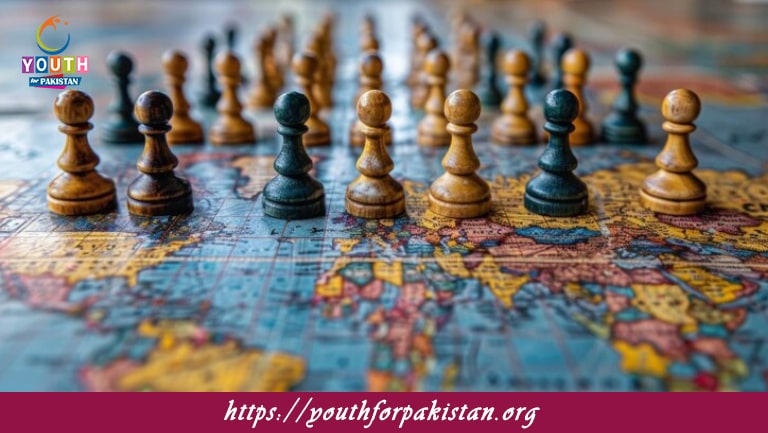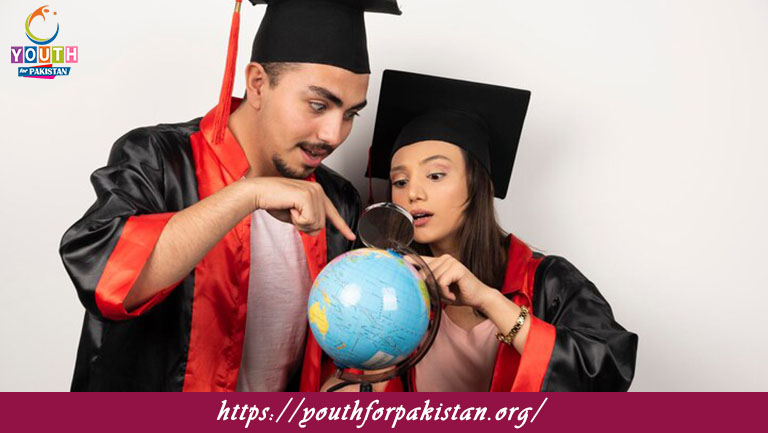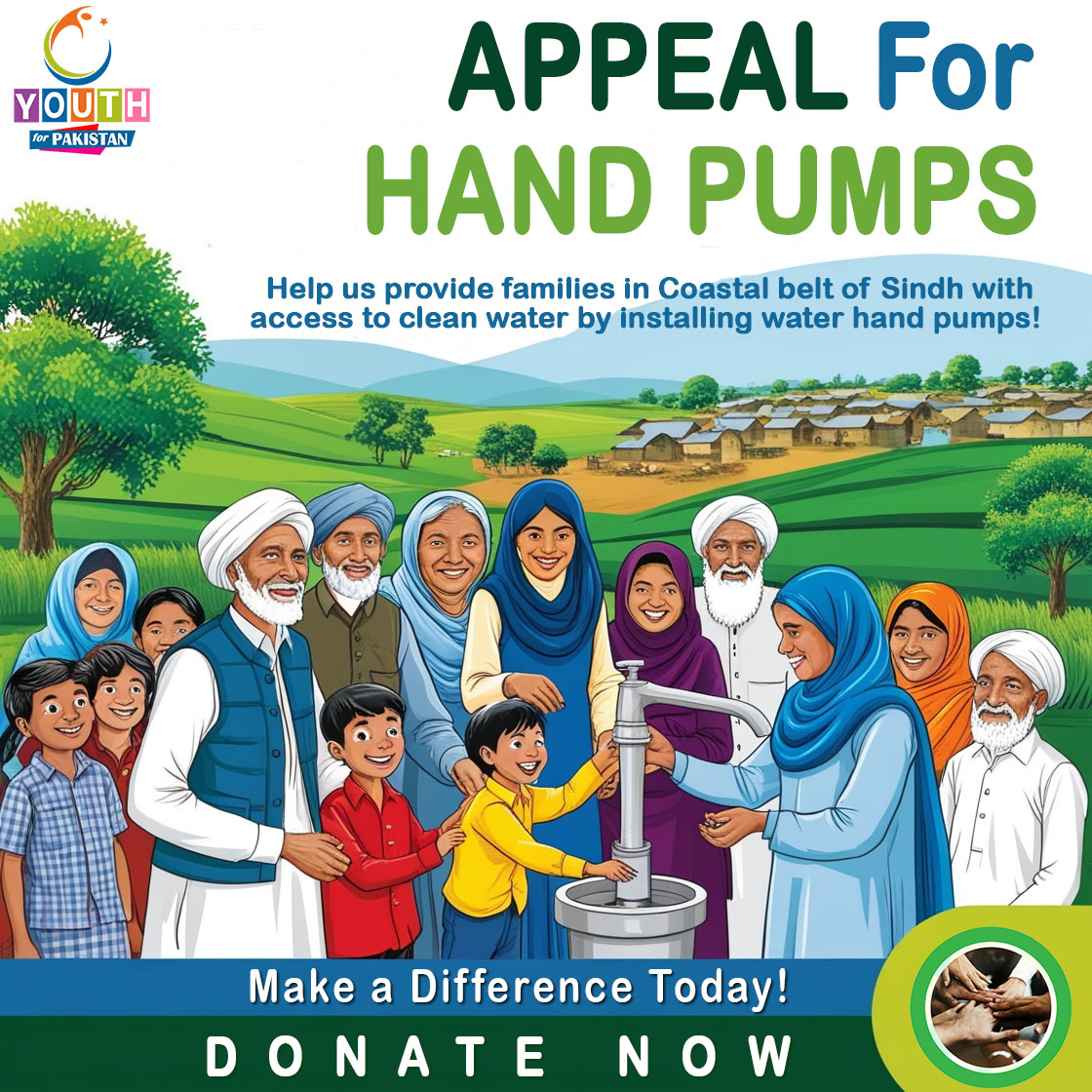Welcome to the World Geopolitics MCQs with Answers. In this post, we are sharing World Geopolitics Multiple Choice Questions and Answers in World General Knowledge section for various competitive exams in Pakistan. Find practice World Geopolitics practice test with answers here. Each question offers a chance to enhance your knowledge regarding World Geopolitics MCQs Online Test.
What is the term for a system in which one country extends its power and influence over other nations through diplomacy or military force?
A) Nationalism
B) Imperialism
C) Federalism
D) Socialism
Which international organization was founded in 1945 with the goal of promoting peace and cooperation among countries and preventing conflicts?
A) NATO
B) UNICEF
C) EU
D) United Nations
What is the term for the practice of using economic and political pressure to influence the actions of other countries?
A) Soft power
B) Hard power
C) Smart power
D) Coercive power
Which U.S. foreign policy doctrine stated that the United States would provide military and economic assistance to nations threatened by communism during the Cold War?
A) Truman Doctrine
B) Monroe Doctrine
C) Marshall Plan
D) Eisenhower Doctrine
The conflict between Russia and Ukraine, which began in 2014, is centered on the annexation of which region by Russia?
A) Crimea
B) Donetsk
C) Luhansk
D) Odessa
The concept of “balance of power” in geopolitics aims to:
A) Promote global domination by a single superpower
B) Prevent any one nation from becoming too powerful
C) Encourage colonial expansion
D) Facilitate trade agreements
The European Union (EU) is primarily an economic and political union of:
A) European countries
B) African countries
C) Asian countries
D) South American countries
What international organization is often referred to as the “defender of the West” and was created as a military alliance during the Cold War?
A) United Nations
B) European Union
C) NATO
D) Organization of American States
Geopolitical analysts often refer to the region consisting of Russia and its neighboring countries as the:
A) Eurasian Union
B) Slavic Commonwealth
C) Russian Bloc
D) Near Abroad
The doctrine that warned against European interference in the affairs of newly independent nations in the Western Hemisphere is known as the:
A) Truman Doctrine
B) Monroe Doctrine
C) Marshall Plan
D) Eisenhower Doctrine
The conflict between Israel and Palestine involves disputes over:
A) Natural resources
B) Religious beliefs and territorial claims
C) Linguistic differences
D) Trade agreements
What is the term for a situation in which two superpowers, in this case, the United States and the Soviet Union, compete for global influence without direct military conflict?
A) Bipolarity
B) Unipolarity
C) Multipolarity
D) Cold War
The Organization of Petroleum Exporting Countries (OPEC) is primarily a cartel that aims to:
A) Promote free trade in oil
B) Regulate global oil prices
C) Encourage oil exploration
D) Promote nuclear energy
What term is used to describe the practice of temporarily withholding or limiting the sale of essential goods, such as oil, to other nations for political purposes?
A) Sanctions
B) Boycott
C) Embargo
D) Isolationism
The concept of the “Asian Tigers” refers to the rapid economic growth of which Asian countries?
A) China, Japan, and South Korea
B) India, Thailand, and Malaysia
C) Taiwan, Hong Kong, Singapore, and South Korea
D) Vietnam, Indonesia, and the Philippines
The “One Belt, One Road” initiative, also known as the Belt and Road Initiative (BRI), is a major infrastructure and economic development project launched by:
A) Japan
B) India
C) China
D) Russia
What organization was founded to promote economic cooperation among African countries and reduce trade barriers on the continent?
A) OPEC
B) African Union
C) African Development Bank
D) Southern African Development Community
The term “soft power” in geopolitics refers to a nation’s ability to influence others through:
A) Military force
B) Economic and cultural influence
C) Coercion
D) Diplomacy
The idea of “manifest destiny” played a significant role in the expansion of the United States across North America in the 19th century. What did it suggest?
A) The United States had a divine right to expand westward
B) The United States should maintain isolationism
C) The United States should avoid territorial expansion
D) The United States should remain neutral in international conflicts
What term is used to describe a state that is not formally recognized as a sovereign entity but has some degree of self-governance?
A) Nation-state
B) Protectorate
C) Autonomous region
D) Puppet state
The “Arab Spring” was a series of protests and uprisings in several Arab countries in the early 2010s. What was one of the key demands of the protestors?
A) Greater economic inequality
B) Political freedom and democratic reforms
C) Stronger autocratic rule
D) Religious homogeneity
The United States’ policy of containment during the Cold War was aimed at:
A) Promoting communism
B) Preventing the spread of communism
C) Supporting non-aligned nations
D) Fostering détente
What international agreement, signed in 2015, aimed to limit Iran’s nuclear program in exchange for sanctions relief?
A) Paris Agreement
B) Geneva Accords
C) Iran Nuclear Deal (JCPOA)
D) SALT II Treaty
The concept of “geopolitical pivot” or “pivot state” suggests that a country has strategic importance due to its geographic location. Which country is often referred to as a geopolitical pivot in Asia?
A) Japan
B) China
C) India
D) Pakistan
The North Atlantic Treaty Organization (NATO) is a military alliance that includes most Western European countries and the United States. It was primarily formed to:
A) Counter the influence of the Soviet Union during the Cold War
B) Promote economic cooperation in Europe
C) Facilitate free trade between member countries
D) Prevent colonization of Africa
“Realism” is a school of thought in geopolitics that emphasizes the role of:
A) Ethical considerations in foreign policy
B) International organizations in maintaining peace
C) National interests and power dynamics
D) Global cooperation and diplomacy
The “Thucydides Trap” is a concept in geopolitics that warns of the potential for conflict when a rising power (like China) threatens the dominance of an established power (like the United States). Who is the concept named after?
A) A Chinese philosopher
B) An American military strategist
C) An ancient Greek historian
D) A Russian diplomat
What is the term for a situation in which a country exerts political, economic, and military influence over other countries, often to establish or maintain dominance?
A) Geopolitical alignment
B) Sphere of influence
C) Isolationism
D) Multilateralism
The “Arab Spring” was a series of protests and uprisings in several Arab countries in the early 2010s. What was one of the key demands of the protestors?
A) Greater economic inequality
B) Political freedom and democratic reforms
C) Stronger autocratic rule
D) Religious homogeneity
The United States’ policy of containment during the Cold War was aimed at:
A) Promoting communism
B) Preventing the spread of communism
C) Supporting non-aligned nations
D) Fostering détente
What international agreement, signed in 2015, aimed to limit Iran’s nuclear program in exchange for sanctions relief?
A) Paris Agreement
B) Geneva Accords
C) Iran Nuclear Deal (JCPOA)
D) SALT II Treaty
The concept of “geopolitical pivot” or “pivot state” suggests that a country has strategic importance due to its geographic location. Which country is often referred to as a geopolitical pivot in Asia?
A) Japan
B) China
C) India
D) Pakistan
The North Atlantic Treaty Organization (NATO) is a military alliance that includes most Western European countries and the United States. It was primarily formed to:
A) Counter the influence of the Soviet Union during the Cold War
B) Promote economic cooperation in Europe
C) Facilitate free trade between member countries
D) Prevent colonization of Africa
“Realism” is a school of thought in geopolitics that emphasizes the role of:
A) Ethical considerations in foreign policy
B) International organizations in maintaining peace
C) National interests and power dynamics
D) Global cooperation and diplomacy
The “Thucydides Trap” is a concept in geopolitics that warns of the potential for conflict when a rising power (like China) threatens the dominance of an established power (like the United States). Who is the concept named after?
A) A Chinese philosopher
B) An American military strategist
C) An ancient Greek historian
D) A Russian diplomat
What is the term for a situation in which a country exerts political, economic, and military influence over other countries, often to establish or maintain dominance?
A) Geopolitical alignment
B) Sphere of influence
C) Isolationism
D) Multilateralism
What organization was founded to promote economic cooperation among African countries and reduce trade barriers on the continent?
A) OPEC
B) African Union
C) African Development Bank
D) Southern African Development Community
The term “soft power” in geopolitics refers to a nation’s ability to influence others through:
A) Military force
B) Economic and cultural influence
C) Coercion
D) Diplomacy
The idea of “manifest destiny” played a significant role in the expansion of the United States across North America in the 19th century. What did it suggest?
A) The United States had a divine right to expand westward
B) The United States should maintain isolationism
C) The United States should avoid territorial expansion
D) The United States should remain neutral in international conflicts
What term is used to describe a state that is not formally recognized as a sovereign entity but has some degree of self-governance?
A) Nation-state
B) Protectorate
C) Autonomous region
D) Puppet state
The concept of “balance of power” in geopolitics aims to:
A) Promote global domination by a single superpower
B) Prevent any one nation from becoming too powerful
C) Encourage colonial expansion
D) Facilitate trade agreements
The “Arab Spring” was a series of protests and uprisings in several Arab countries in the early 2010s. What was one of the key demands of the protestors?
A) Greater economic inequality
B) Political freedom and democratic reforms
C) Stronger autocratic rule
D) Religious homogeneity
The United States’ policy of containment during the Cold War was aimed at:
A) Promoting communism
B) Preventing the spread of communism
C) Supporting non-aligned nations
D) Fostering détente
The concept of “geopolitical pivot” or “pivot state” suggests that a country has strategic importance due to its geographic location. Which country is often referred to as a geopolitical pivot in Asia?
A) Japan
B) China
C) India
D) Pakistan
The North Atlantic Treaty Organization (NATO) is a military alliance that includes most Western European countries and the United States. It was primarily formed to:
A) Counter the influence of the Soviet Union during the Cold War
B) Promote economic cooperation in Europe
C) Facilitate free trade between member countries
D) Prevent colonization of Africa
“Realism” is a school of thought in geopolitics that emphasizes the role of:
A) Ethical considerations in foreign policy
B) International organizations in maintaining peace
C) National interests and power dynamics
D) Global cooperation and diplomacy
The “Thucydides Trap” is a concept in geopolitics that warns of the potential for conflict when a rising power (like China) threatens the dominance of an established power (like the United States). Who is the concept named after?
A) A Chinese philosopher
B) An American military strategist
C) An ancient Greek historian
D) A Russian diplomat
What is the term for a situation in which a country exerts political, economic, and military influence over other countries, often to establish or maintain dominance?
A) Geopolitical alignment
B) Sphere of influence
C) Isolationism
D) Multilateralism
What organization was founded to promote economic cooperation among African countries and reduce trade barriers on the continent?
A) OPEC
B) African Union
C) African Development Bank
D) Southern African Development Community
The term “soft power” in geopolitics refers to a nation’s ability to influence others through:
A) Military force
B) Economic and cultural influence
C) Coercion
D) Diplomacy
The idea of “manifest destiny” played a significant role in the expansion of the United States across North America in the 19th century. What did it suggest?
A) The United States had a divine right to expand westward
B) The United States should maintain isolationism
C) The United States should avoid territorial expansion
D) The United States should remain neutral in international conflicts
What term is used to describe a state that is not formally recognized as a sovereign entity but has some degree of self-governance?
A) Nation-state
B) Protectorate
C) Autonomous region
D) Puppet state
The concept of “balance of power” in geopolitics aims to:
A) Promote global domination by a single superpower
B) Prevent any one nation from becoming too powerful
C) Encourage colonial expansion
D) Facilitate trade agreements
The “Arab Spring” was a series of protests and uprisings in several Arab countries in the early 2010s. What was one of the key demands of the protestors?
A) Greater economic inequality
B) Political freedom and democratic reforms
C) Stronger autocratic rule
D) Religious homogeneity
The United States’ policy of containment during the Cold War was aimed at:
A) Promoting communism
B) Preventing the spread of communism
C) Supporting non-aligned nations
D) Fostering détente
What international agreement, signed in 2015, aimed to limit Iran’s nuclear program in exchange for sanctions relief?
A) Paris Agreement
B) Geneva Accords
C) Iran Nuclear Deal (JCPOA)
D) SALT II Treaty
The concept of “geopolitical pivot” or “pivot state” suggests that a country has strategic importance due to its geographic location. Which country is often referred to as a geopolitical pivot in Asia?
A) Japan
B) China
C) India
D) Pakistan
The North Atlantic Treaty Organization (NATO) is a military alliance that includes most Western European countries and the United States. It was primarily formed to:
A) Counter the influence of the Soviet Union during the Cold War
B) Promote economic cooperation in Europe
C) Facilitate free trade between member countries
D) Prevent colonization of Africa
“Realism” is a school of thought in geopolitics that emphasizes the role of:
A) Ethical considerations in foreign policy
B) International organizations in maintaining peace
C) National interests and power dynamics
D) Global cooperation and diplomacy
The “Thucydides Trap” is a concept in geopolitics that warns of the potential for conflict when a rising power (like China) threatens the dominance of an established power (like the United States). Who is the concept named after?
A) A Chinese philosopher
B) An American military strategist
C) An ancient Greek historian
D) A Russian diplomat
What is the term for a situation in which a country exerts political, economic, and military influence over other countries, often to establish or maintain dominance?
A) Geopolitical alignment
B) Sphere of influence
C) Isolationism
D) Multilateralism
What organization was founded to promote economic cooperation among African countries and reduce trade barriers on the continent?
A) OPEC
B) African Union
C) African Development Bank
D) Southern African Development Community
The term “soft power” in geopolitics refers to a nation’s ability to influence others through:
A) Military force
B) Economic and cultural influence
C) Coercion
D) Diplomacy
The idea of “manifest destiny” played a significant role in the expansion of the United States across North America in the 19th century. What did it suggest?
A) The United States had a divine right to expand westward
B) The United States should maintain isolationism
C) The United States should avoid territorial expansion
D) The United States should remain neutral in international conflicts
What term is used to describe a state that is not formally recognized as a sovereign entity but has some degree of self-governance?
A) Nation-state
B) Protectorate
C) Autonomous region
D) Puppet state
The concept of “balance of power” in geopolitics aims to:
A) Promote global domination by a single superpower
B) Prevent any one nation from becoming too powerful
C) Encourage colonial expansion
D) Facilitate trade agreements
The “Arab Spring” was a series of protests and uprisings in several Arab countries in the early 2010s. What was one of the key demands of the protestors?
A) Greater economic inequality
B) Political freedom and democratic reforms
C) Stronger autocratic rule
D) Religious homogeneity
The United States’ policy of containment during the Cold War was aimed at:
A) Promoting communism
B) Preventing the spread of communism
C) Supporting non-aligned nations
D) Fostering détente
What international agreement, signed in 2015, aimed to limit Iran’s nuclear program in exchange for sanctions relief?
A) Paris Agreement
B) Geneva Accords
C) Iran Nuclear Deal (JCPOA)
D) SALT II Treaty
The concept of “geopolitical pivot” or “pivot state” suggests that a country has strategic importance due to its geographic location. Which country is often referred to as a geopolitical pivot in Asia?
A) Japan
B) China
C) India
D) Pakistan
The North Atlantic Treaty Organization (NATO) is a military alliance that includes most Western European countries and the United States. It was primarily formed to:
A) Counter the influence of the Soviet Union during the Cold War
B) Promote economic cooperation in Europe
C) Facilitate free trade between member countries
D) Prevent colonization of Africa
“Realism” is a school of thought in geopolitics that emphasizes the role of:
A) Ethical considerations in foreign policy
B) International organizations in maintaining peace
C) National interests and power dynamics
D) Global cooperation and diplomacy
The “Thucydides Trap” is a concept in geopolitics that warns of the potential for conflict when a rising power (like China) threatens the dominance of an established power (like the United States). Who is the concept named after?
A) A Chinese philosopher
B) An American military strategist
C) An ancient Greek historian
D) A Russian diplomat
What is the term for a situation in which a country exerts political, economic, and military influence over other countries, often to establish or maintain dominance?
A) Geopolitical alignment
B) Sphere of influence
C) Isolationism
D) Multilateralism
What organization was founded to promote economic cooperation among African countries and reduce trade barriers on the continent?
A) OPEC
B) African Union
C) African Development Bank
D) Southern African Development Community
The term “soft power” in geopolitics refers to a nation’s ability to influence others through:
A) Military force
B) Economic and cultural influence
C) Coercion
D) Diplomacy
The idea of “manifest destiny” played a significant role in the expansion of the United States across North America in the 19th century. What did it suggest?
A) The United States had a divine right to expand westward
B) The United States should maintain isolationism
C) The United States should avoid territorial expansion
D) The United States should remain neutral in international conflicts
What term is used to describe a state that is not formally recognized as a sovereign entity but has some degree of self-governance?
A) Nation-state
B) Protectorate
C) Autonomous region
D) Puppet state
The concept of “balance of power” in geopolitics aims to:
A) Promote global domination by a single superpower
B) Prevent any one nation from becoming too powerful
C) Encourage colonial expansion
D) Facilitate trade agreements
If you are interested to enhance your knowledge regarding Physics, Chemistry, Computer, and Biology please click on the link of each category, you will be redirected to dedicated website for each category.









